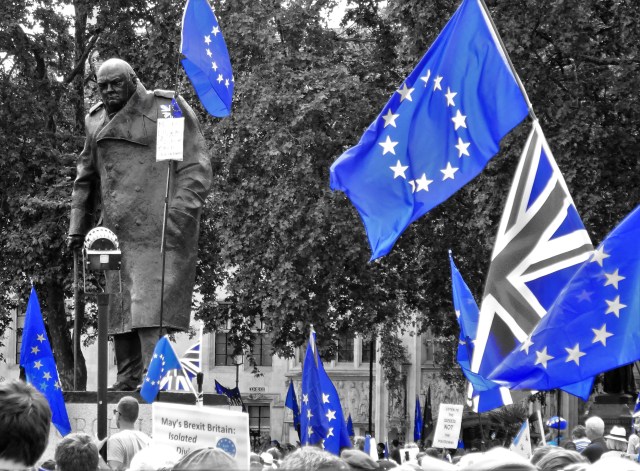
by John Cotter, Senior Lecturer at University of Wolverhampton Law School
▪
The opening lines of a judgment – in common law jurisdictions, at least – can very often be revealing of a court’s concerns. The first five paragraphs of the collegiate High Court judgment (Lord Thomas CJ, Sir Terence Etherton MR and Sales LJ) in Miller indicate very clearly the judges’ worry that their judgment would be misunderstood by sections of the media and the wider public. This judgment did not have “any bearing on the question of the merits or demerits of a withdrawal of the [UK] from the [EU]”, the Court stated. Rather, the question before the Court was a narrow constitutional issue, and a purely legal matter: whether the government could use Royal prerogative powers to give notification of withdrawal from the EU pursuant to Article 50 TEU or whether this was a matter for the Houses of Parliament. On this question, the High Court ruled that the notification under Article 50 TEU may not be given by means of Royal prerogative; rather, such notification is a matter for Parliament exclusively. While the conducting of international relations and the signing of and withdrawal from international treaties were powers generally to be exercised by the executive on behalf of the Crown, the High Court reasoned that where withdrawal from a treaty would result in changes to domestic law (as withdrawal from the EU would), such withdrawal could not be effected without Parliament.
The Court’s attempt to avoid misinterpretation of its role appears, however, to have fallen on deaf or wilfully closed ears, with the judges being subjected to attacks in sections of the media that were astonishing even by the standards of Britain’s rather histrionic tabloid press (one publication’s front page contained the headline “Enemies of the People” along with photographs of the three judges). To many of those advocating Brexit, the judgment was an unelected court playing politics and frustrating the will of the people (even though the European Union Referendum Act 2015 had not provided that the referendum result be binding). To the Court’s defenders, the judgment was the latest in a line of rulings in which the courts upheld the supremacy of Parliament over Royal prerogative powers. It is certainly the case that the High Court judgment, if upheld by the Supreme Court (which is due to hear an appeal in early December), has the potential to make the giving of the Article 50 notification a more lengthy and complex process. It is conceivable that both Houses of Parliament could use their leverage to require the government to reveal more detail on their post-notification negotiating aims. However, as a matter of realpolitik, the judgment is unlikely prevent Article 50 being triggered: Labour, the largest opposition party in the Commons has indicated that it will not vote against a Bill to give notification under Article 50, and it is unlikely that the Lords would provoke further questions about their relevance in modern Britain by blocking Brexit.
Continue reading “R (Miller) v The Secretary of State for Exiting the European Union [2016] EWHC 2768 (Admin) : Realpolitik and the Revocation of an Article 50 TEU Notification to Withdraw” →







